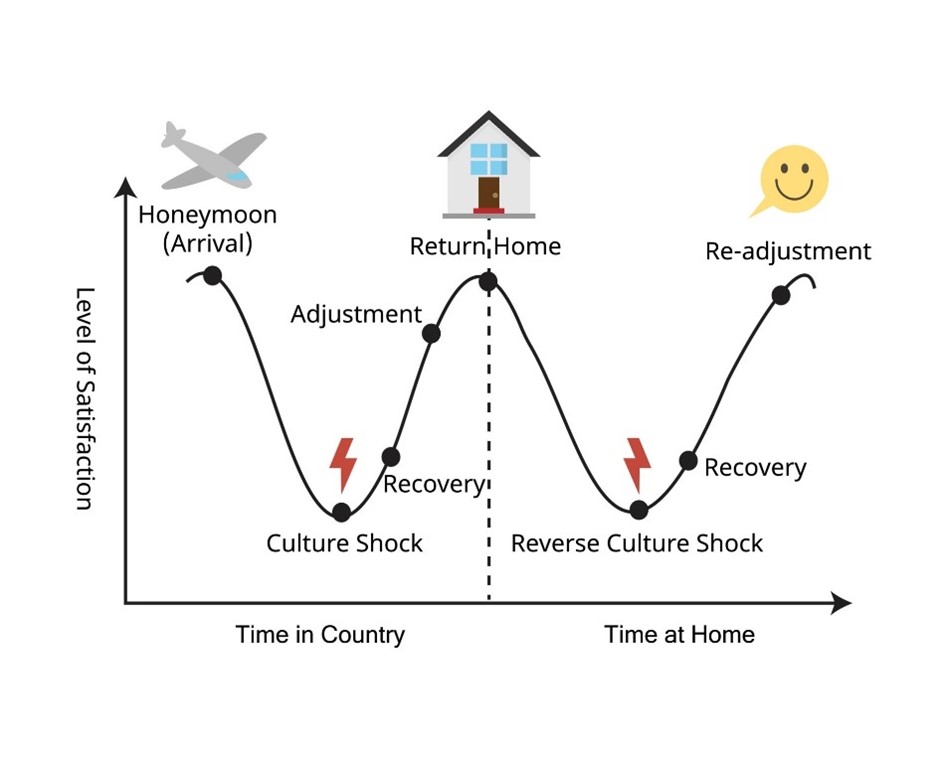Reverse Culture Shock
Preparing For Reverse Culture Shock
Studying abroad can be one of the most exciting experiences of your life. You'll gain new perspectives that transcend in-class learning. It's natural to want to share your deepened understandings with friends, family, and classmates.
You may have changed substantially, but re-entry may not always be as smooth as anticipated. Thoughts may occur such as, "I've changed so much, but no one at home has," or "The people in my host country had a better way of doing some things".

The Stages of Culture Shock
Here are some tips for re-entry:
- Get plenty of rest even if you have a full calendar. In between time spent catching up with friends, allow yourself time to unwind.
- Connect with other study abroad alumni. It will help to keep your study abroad experience "alive" with people who share similar interests.
- Try journaling or blogging about your study abroad experience.
- Find ways of connecting with your host country's culture within the Denver area. Research expat groups of people from your host culture and visit restaurants that serve the cuisine of your host culture.
Focus on integrating your experience into your academic life. You can find numerous suggestions about ways to internationalize your CU Denver | CU Anschutz experience on our Staying Connected With Your Study Abroad Experience page. You can also connect with other study abroad students and stay updated on OGE events by following us on Instagram.
If you find that your reverse culture shock has not begun to get better, you may want to consider speaking with a mental health professional or a staff member at the CU Denver Counseling Center or the Student and Resident Mental Health team for CU Anschutz students/residents. Reverse culture shock is completely normal, although it can trigger issues like depression, so it is important to address any lingering sadness or frustration to readjust to life back home.
Additional Resources on Re-Entry/Reverse Culture Shock